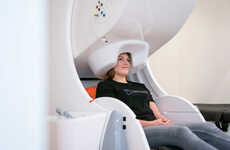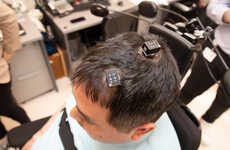
PVS Patient Brain Scans Show Potential of Awareness
Katie Cordrey — February 6, 2010 — World
References: irishtimes & cnn
British and Belgian researchers have found that some people presumed to be in a persistent vegetative state (PVS) may be able to communicate with the assistance of brain scans. In research experiments, functional magnetic resonance imaging (fMRI) was used to scan the brain for activity while asking questions of PVS patientes. Signs of consciousness were detected in 4 of the 23 patients studied.
These recent findings are likely to spur more experimentation and stir up controversy over ethics in PVS cases as well as challenges to the fMRI methodology and interpretation of the results.
These recent findings are likely to spur more experimentation and stir up controversy over ethics in PVS cases as well as challenges to the fMRI methodology and interpretation of the results.
Trend Themes
1. Persistent Vegetative State Brain Scans - Advances in fMRI technology could enable better diagnosis and communication with PVS patients.
2. Neuroscience-based Diagnosis - Brain scan technology may revolutionize other areas of healthcare diagnosis and treatment.
3. Ethics in Medical Research - Controversial medical research findings underscore the need for careful ethical consideration and oversight.
Industry Implications
1. Healthcare - Functional MRI technologies could have significant implications for the health diagnostics industry.
2. Neuroscience - Advancements in fMRI techniques could fuel innovation in neuroscience research.
3. Research Ethics - The healthcare industry will need to invest in more rigorous and ethically sound research standards and practices.
3.1
Score
Popularity
Activity
Freshness















